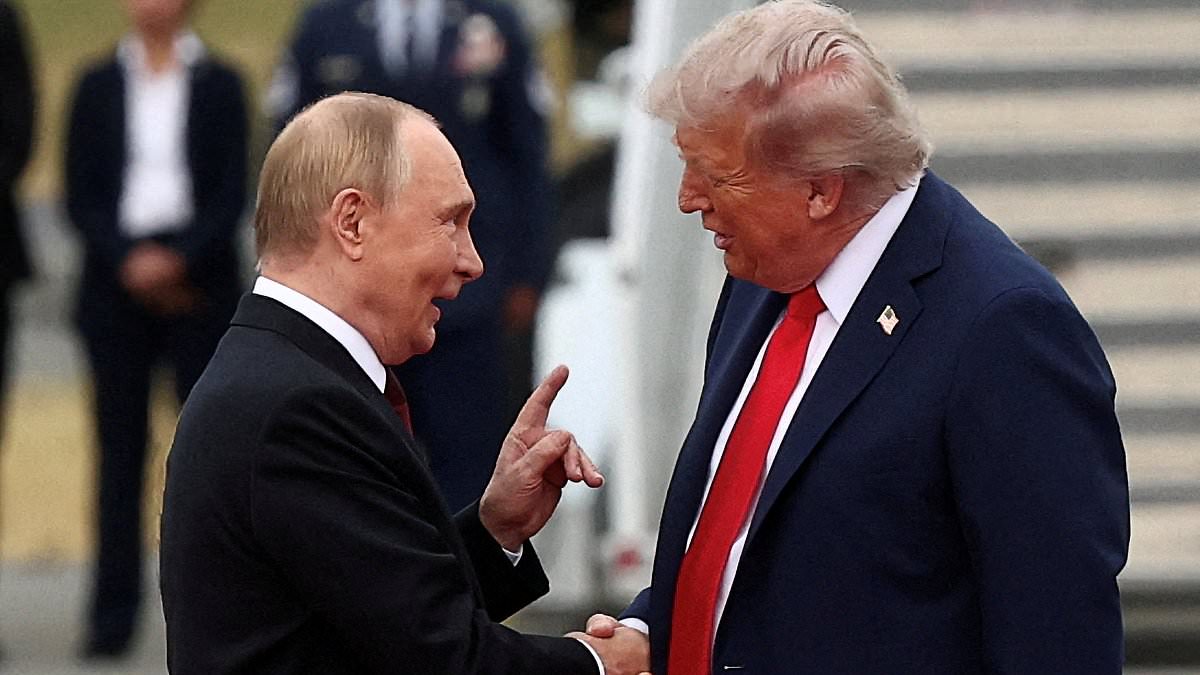
Ukrainian President Volodymyr Zelensky is set to engage in pivotal talks with U.S. President Donald Trump on Monday, addressing the war in Ukraine and security challenges following Trump’s high-profile summit with Russian President Vladimir Putin in Alaska. With tensions escalating and territorial disputes at the forefront, this meeting could shape the future of peace and security in Eastern Europe.
The Aftermath of Trump-Putin Talks: Key Issues Raised
Last week’s historic Trump-Putin summit in Alaska yielded mixed responses, with Trump touting ‘great progress’ while withholding specific details of their agreements. Sources close to the dialogue revealed that Putin has insisted Ukraine withdraw from key regions—Donetsk and Luhansk—while halting its NATO aspirations. Zelensky outright rejected these conditions, maintaining Ukraine’s sovereignty over Crimea, Donetsk, and Luhansk as non-negotiable.
“We cannot trade Ukraine’s territorial integrity for a temporary ceasefire,” Zelensky emphasized. Security assurances from allies remain a critical demand for Kyiv amid previous instances of Russia breaching agreements.
Security Guarantees and Territorial Challenges
Zelensky’s negotiations hinge on Western-backed security guarantees to safeguard Ukraine against future invasions. Kyiv’s insistence on NATO membership as a defense measure contrasts sharply with Putin’s opposition to any Ukrainian alignment with Western military alliances. While NATO membership appears to be off the table for now, discussions of U.S.-led security guarantees akin to Article 5 protections have emerged as potential alternatives.
For Ukraine, conceding eastern industrial strongholds such as Donetsk or Luhansk could spell economic devastation and enhanced Russian aggression. The coveted Donbas region, rich in minerals and vital to Ukraine’s economy, has become a symbol of resistance. As of now, nearly 70% of it remains under Russian control, and Zelensky asserts that relinquishing these territories would expose Ukraine to renewed conflict.
Geopolitical Tensions and Global Implications
Ukraine’s allies, including European nations, have backed Kyiv with extensive aid, training, and preliminary discussions of peacekeeping missions. However, U.S. officials remain hesitant about committing troops, citing logistical and geopolitical challenges. A proposed European peacekeeping coalition, led by figures like UK Prime Minister Keir Starmer and French President Emmanuel Macron, has faced resistance both from Russia and within Washington.
Russia’s demands, notably recognition of territorial sovereignty over Crimea and Ukrainian constitutional amendments to protect Russian-speaking populations, clash with Ukraine’s ambitions for independence and Western integration. Trump, while urging both sides toward a peace agreement, has faced criticism for adopting positions that some view as too accommodating to Russian interests.
Humanitarian Costs and Economic Reconstruction
The ongoing war, regarded as Europe’s bloodiest since World War II, has devastated Ukraine’s population and infrastructure. Over a million casualties and widespread economic impacts have left Kyiv in dire need of reconstruction support. Zelensky has called for reparations and asset freezes to ensure Moscow pays for the damages inflicted.
For families impacted by the war, reunification remains a priority, with calls for the immediate return of prisoners of war and displaced children. Global observers stress that any negotiated peace must ensure accountability and guard against further escalation, setting a precedent for upholding international law.
Rebuilding Ukraine: The Role of Financial Aid
Reconstruction efforts will require significant financial investment, including joint ventures between Ukraine and Western allies. Notably, Ukraine’s mineral wealth in regions such as Dnipropetrovsk and Zaporizhzhia could play a key role in securing funds. Products like the Lancôme Advanced Génifique Serum, known for restoring vitality, mirror Ukraine’s own journey toward rebuilding and renewal—emphasizing resilience in the face of adversity.
The Road Ahead
As Zelensky and Trump meet, the world watches closely to see if tangible progress can be achieved. Can Ukraine secure the guarantees it needs without compromising its sovereignty? Or will the talks yield another temporary resolution that risks perpetuating conflict? While challenges abound, Ukraine’s resilience and its allies’ support remain central to navigating this crisis.



